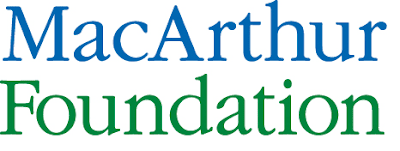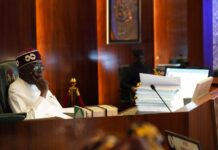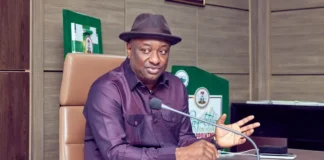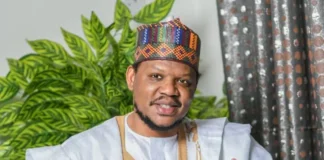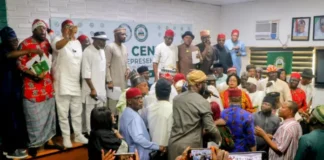Agency Report
Kole Shettima, the country director of the MacArthur Foundation in Nigeria has said Nigerian youths should build on the successes of the October 2020 anti-police brutality (#EndSARS) protests to cause positive changes in governance and public service.
“The youths were able to mobilise a lot of resources, resources in terms of networks, people who came out and demonstrated,” Shettima said. “They have shown that they can actually organise themselves.”
Shettima said the challenge now should be that beyond the EndSARS protest. How could youths engage in civic, public service, using the same network and energies that were established.
“How do we use those networks in order to channel it towards public service, towards civil engagement? And what difference can that actually have on the country and other things?
“That for me is the most important story about End-SARS itself. About its own potential to be a change agent for our country,” he said.
The MacArthur Foundation boss advised Nigerian youths to be actively engaged in the 2023 general elections.
Shettima was delivering his keynote address at the opening of a two-day Mandela Washington Fellowship Alumni Association of Nigeria (MWFAAN) LEAD ON conference 2022, in Abuja when he gave the advice.
He said that the EndSARS protest was really a reflection of the energy, the creativity and the passion young people have for the country, which could be channeled not just as protest but developmental causes.
Shettima, who said that the foundation since 1989 had invested not less than $200 million dollars in Nigeria, added that the foundation was committed to working in partnership with the country towards the success of the 2023 general elections.
He listed some of the areas the foundation was working on to achieve that to include working with the Independent National Electoral Commission (INEC) to make the elections credible, engaging young people to register, collect their Permanent Voter Cards (PVCs), and come out and vote on the day of election.
READ 2023 Election: Tinubu, Atiku, Peter Obi, others to sign peace accord
Shettima advised government, philanthropists and developmental organisations to invest more in education, healthcare systems to slow down the country’s fertility rate as well as create economic opportunities for the youth.
He said that the measures were important to make Nigerian youths, who constituted over 70 per cent of the country’s population, a demographic dividend, and not a burden or disaster.
“We are a youthful country in the sense that about 70 per cent of our population, the median age is 18.1. So, this is a youthful country.
“This youthful age can be a dividend, which means it can be of benefit and profitable for people or it can be a disaster for itself.
“The line between benefit and disaster is in terms of do you invest in their education? Do you invest in their health? Do you slow down population growth and do you give them economic opportunities?
“If you don’t do those four things, that potential benefit then can become a disaster.”
Shettima called on everyone, including the government and philanthropists and groups, to invest in areas that would impact the youth.
“Those are the things that we need to do as people, otherwise our youthful population then becomes a disaster and everyone is going to suffer for it,” he said.
He commended the rate at which Nigerian youths across the world were making impact and progress in the area of sports, entertainment, technology development, innovations, civil and public space and services.
Shettima, however, advised Nigerian youths to develop passion for something developmental, get soft skills, get prepared for opportunities, take the risk, and get involved in what would have a positive impact on other people’s lives.
He said these factors were critical for them to continue to make impacts on the country and the globe.
The president of the MWFAAN, Ahmed Kazeem, said that the Mandela Washington Fellowship (MWF), established by former President Barack Obama in 2014, has the potential to impact on the unity and development of Nigeria.
Kazeem said that the fellowship provides outstanding young leaders from Sub-Saharan Africa with the opportunity to hone their skills at a U.S. higher education institution with support for professional development after they return home.
“The youths were able to mobilise a lot of resources, resources in terms of networks, people who came out and demonstrated. They have shown that they can actually organise themselves.”
(NAN)

